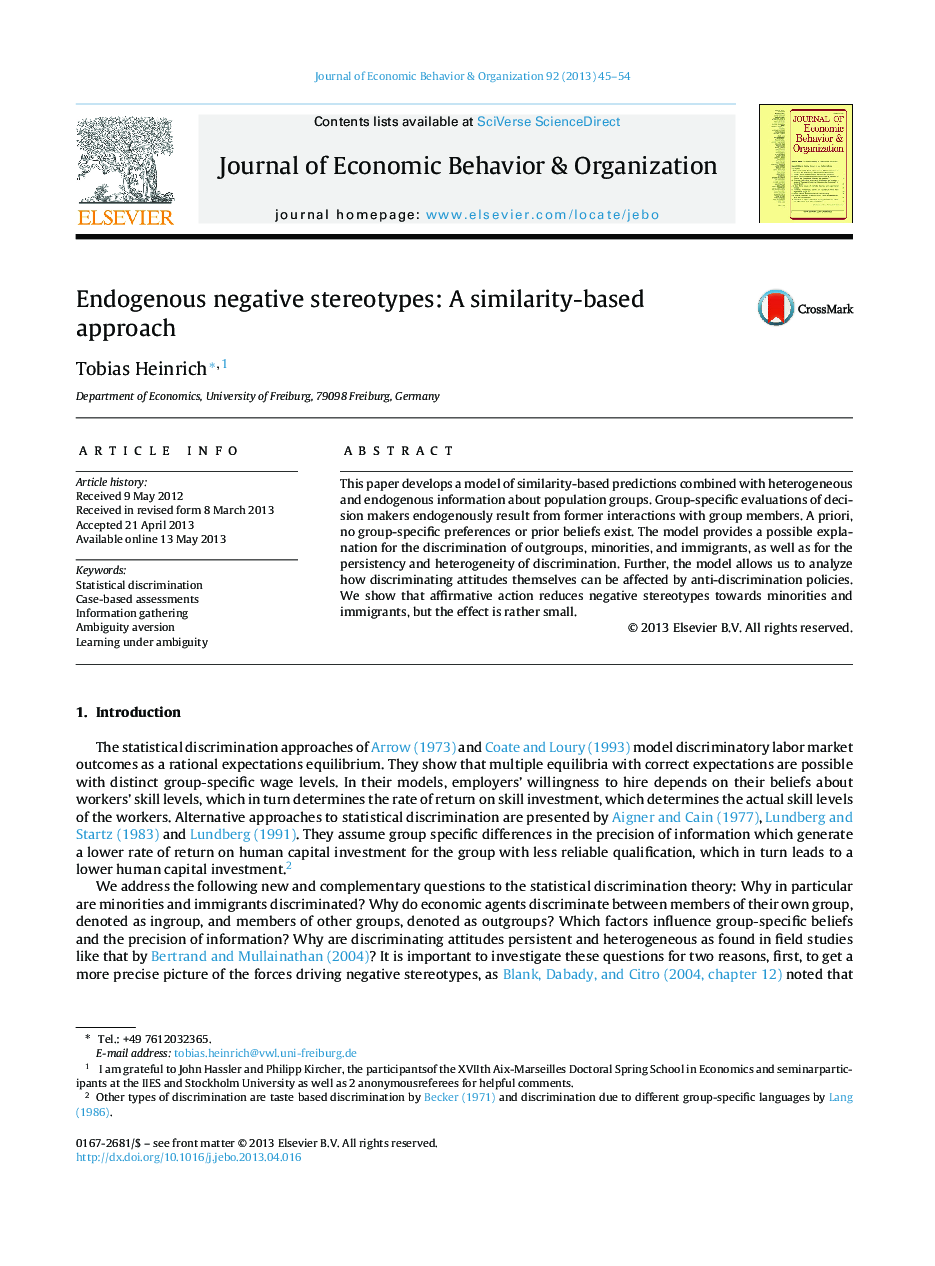| Article ID | Journal | Published Year | Pages | File Type |
|---|---|---|---|---|
| 7243752 | Journal of Economic Behavior & Organization | 2013 | 10 Pages |
Abstract
This paper develops a model of similarity-based predictions combined with heterogeneous and endogenous information about population groups. Group-specific evaluations of decision makers endogenously result from former interactions with group members. A priori, no group-specific preferences or prior beliefs exist. The model provides a possible explanation for the discrimination of outgroups, minorities, and immigrants, as well as for the persistency and heterogeneity of discrimination. Further, the model allows us to analyze how discriminating attitudes themselves can be affected by anti-discrimination policies. We show that affirmative action reduces negative stereotypes towards minorities and immigrants, but the effect is rather small.
Related Topics
Social Sciences and Humanities
Economics, Econometrics and Finance
Economics and Econometrics
Authors
Tobias Heinrich,
